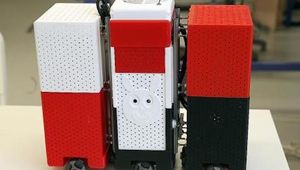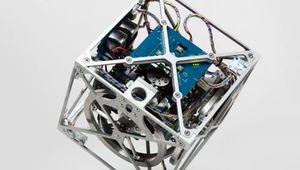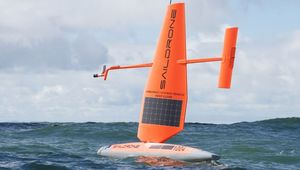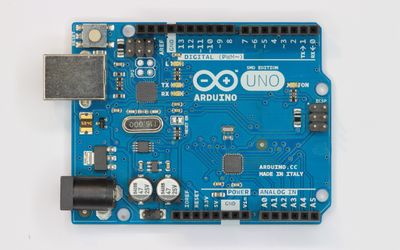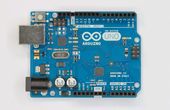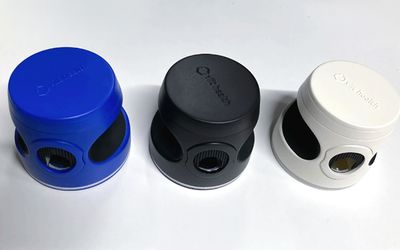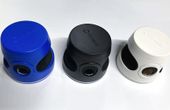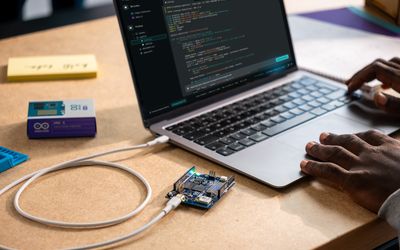Arduino Nano Matter
Prototyping board featuring MGM240S, enabling 802.15.4 and BLE connectivity within Arduino
General
| Product Type | Development Boards |
| Applications | Prototyping & Development, Artificial Intelligence & Machine Learning |
| Key Features | 32-bit Arm® Cortex® - M33, 1536 kB Flash, 256 kB RAM, Digital I/O Pins, 3.3 V |
Technical Specifications
| Microprocessor | MGM240SD22VNA (32-bit Arm® Cortex®-M33 with DSP instruction and FPU) |
| Memory | 1536 kB Flash, 256 kB RAM |
| Security | Secure Vault™ High |
| Digital I/O | 22 |
| Operating voltage | 3.3 V |
| Current per I/O Pin | 40 mA |
| Clock Speed | 78 MHz |
| Antenna On-Board | 2.4 GHz |
Overview
The Arduino Nano Matter integrates the Silicon Labs MGM240S, a 32-bit Arm Cortex-M33 microcontroller, into a Nano-sized form factor. It provides Matter connectivity through 802.15.4 (Thread) and Bluetooth Low Energy, enabling the development of smart home devices and IoT solutions. Security is reinforced with Secure Vault technology, protecting against IoT threats. It supports multiprotocol connectivity, including Zigbee and OpenThread. This board allows developers to prototype Matter-compatible devices and upgrade existing Nano projects. Debugging is facilitated over USB via the SWD interface, eliminating the need for external probes. Designed for low energy consumption, it is suitable for battery-powered applications.
Optimized for Machine Learning
The FPU on the MGM240SD22VNA enables faster neural network processing while reducing the load on the main processor. This boosts performance, improves energy efficiency, and allows the processor to handle additional tasks, ideal for edge AI applications, such as smart sensors.
Features of Arduino Nano Matter
The Arduino Nano Matter integrates a Silicon Labs MGM240S, enabling Matter and multiprotocol connectivity in a compact form. Key features include an Arm Cortex-M33 processor, secure hardware, and versatile I/O. Let’s explore these features in detail:
Multiprotocol Connectivity for Smart Home Applications
The Arduino Nano Matter is designed to support modern IoT applications, integrating the Silicon Labs MGM240SD22VNA, a 32-bit Arm® Cortex®-M33 microcontroller with DSP instruction and FPU capabilities. It provides Matter-ready connectivity, enabling seamless development of smart home solutions that comply with the latest standards.
The board supports 802.15.4 (Thread) and Bluetooth® Low Energy (BLE) 5.3, along with Bluetooth Mesh, allowing versatile wireless communication. Additionally, developers can experiment with Zigbee® and OpenThread, broadening the scope of device interoperability and ensuring compatibility with a wide range of smart home ecosystems. This makes it a valuable tool for prototyping and product development in home automation, industrial IoT, and other wireless applications.
Advanced Security and Power Efficiency
Security remains a critical concern in IoT devices, and the Nano Matter addresses this with Secure Vault™ technology from Silicon Labs. This feature provides hardware-based encryption, secure boot, and protection against escalating cyber threats, ensuring robust security for connected devices.
The board is designed for low power consumption, making it highly efficient for battery-powered applications. It operates at 3.3V, with a clock speed of 78 MHz, and supports power-efficient wireless communication protocols. This energy-efficient design makes it ideal for remote sensors, wearable devices, and battery-operated IoT products where extended battery life is crucial.
Compact Form Factor and Expandability
The Arduino Nano Matter maintains the standard Nano-family pinout, providing 22 digital I/O pins, 20 analog input channels (12-bit resolution), and 4 DAC channels with adjustable 8-12 bit resolution. It supports 22 PWM outputs, with a maximum of 5 simultaneous active pins, allowing developers to work with a variety of actuators, sensors, and control mechanisms.
The external interrupt functionality is available on all digital pins, making it suitable for real-time applications and event-driven processing. Measuring only 18x45 mm, the compact board can be integrated into existing projects, providing a small footprint for embedded systems, IoT nodes, and automation applications.
USB-C Debugging and User Interface Features
For ease of development, the Nano Matter supports USB debugging via the SWD (Serial Wire Debug) interface, eliminating the need for external debugging probes. This simplifies firmware development and troubleshooting, making it more accessible for both beginners and experienced developers. The onboard RGB LED and user push button offer built-in interaction options for quick prototyping and testing.
Additionally, the USB-C connector provides reliable power and data transfer, ensuring compatibility with modern development environments. This combination of debugging, power management, and interactive components enhances the overall usability and functionality of the board, making it a strong option for developing Matter-compatible IoT solutions.
References
Arduino Pro [Internet]
